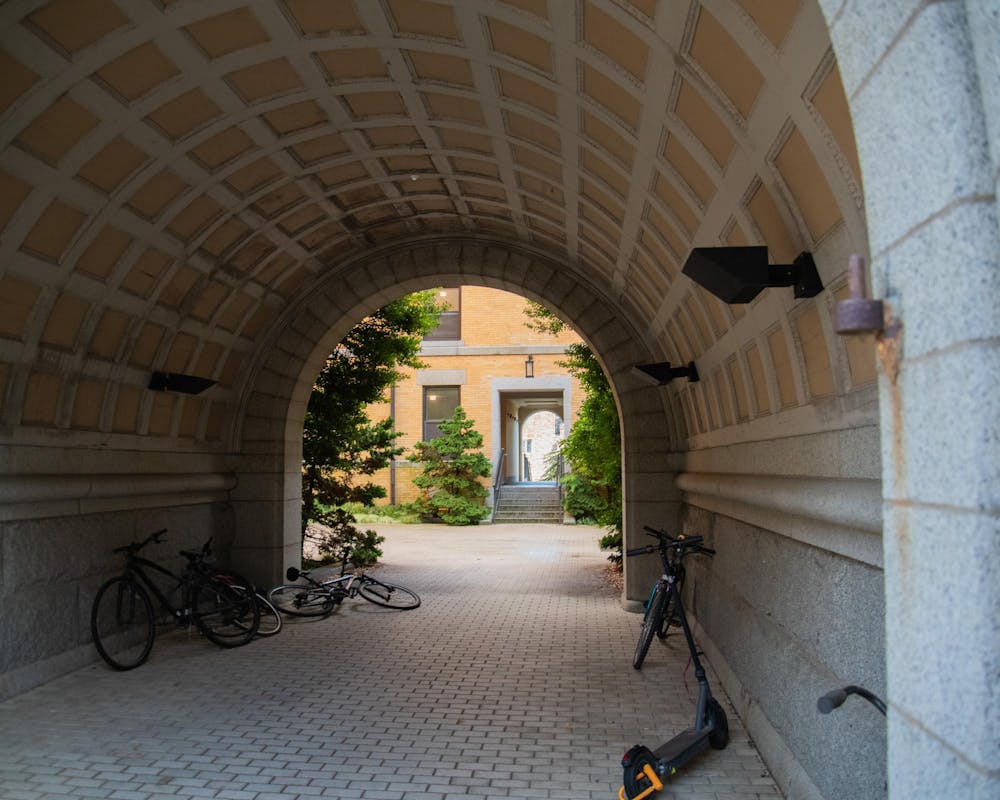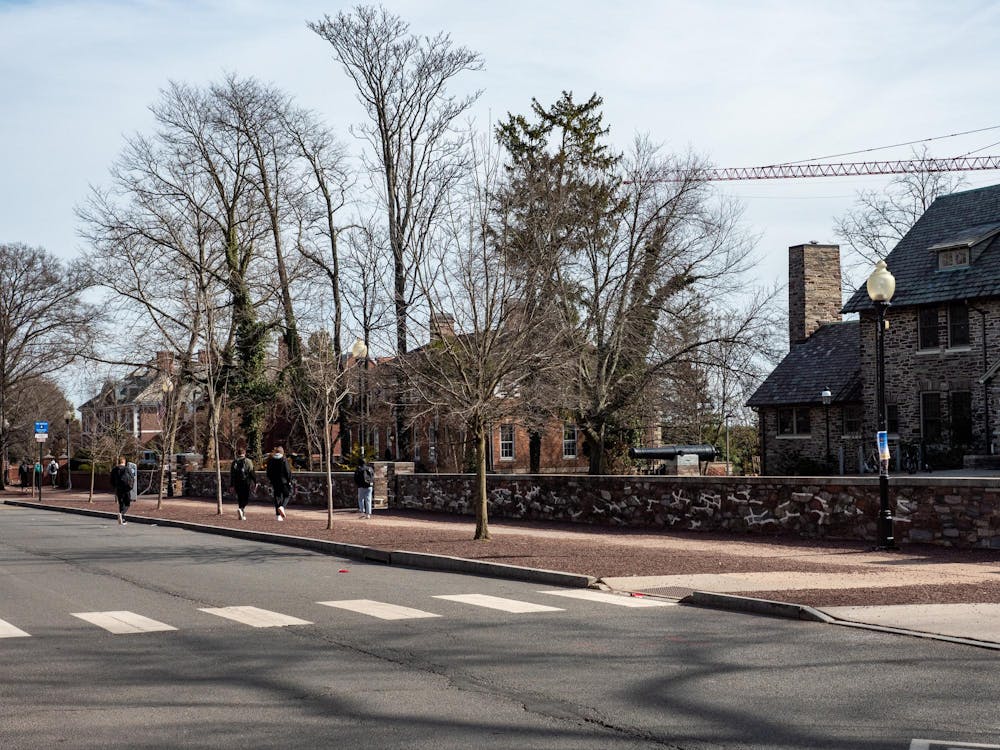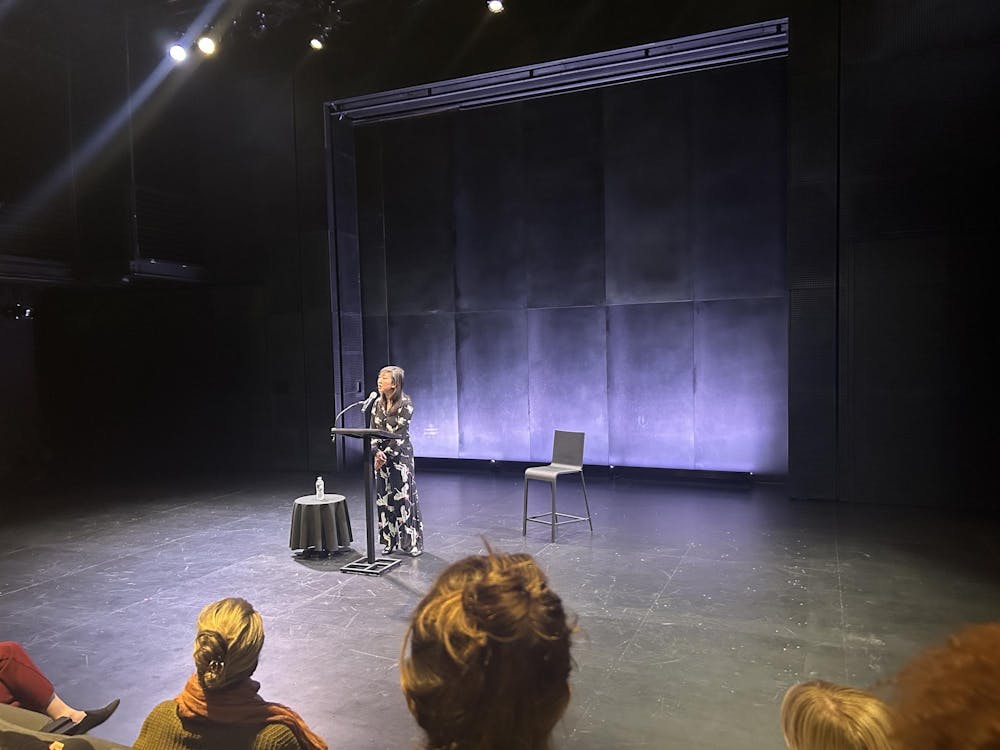Editor’s Note: A previous version of this piece included unsubstantiated claims that University Facilities’ responses to student complaints were delayed. The body of the piece and its title have been updated since publication. The ‘Prince’ regrets this error.
This fall, many students have reported worsening mice infestation in University housing, especially in upperclass dorms. Some students claim that Facilities’ response to the prevalence of mice is inadequate.
Walking down the halls of Brown Hall, several door handles hold Facilities work notices with “mice” marked as the issue being addressed.
Sicile Naddeo-Gjergji ’26, a Brown resident, who reported frustration with Facilities in previous years, attempted to handle her mouse issues on her own this year.
“We have contacted Facilities in years prior, but the mouse traps haven’t typically worked,” she explained.
In Brown, issues with mice are common.
“Our next door neighbors also have them [as well as] several other people on the floor,” Naddeo-Gjergji said.
Naddeo-Gjergji said she and her roommate have seen mice in their rooms every year since arriving on campus, yet they have “never had them so early in the year.”
Abigail Rabieh ’25 faced similar issues in her dorm in Laughlin-1901 Hall. Around Oct. 25, Rabieh spotted her first mouse.
“We were seeing mice every day for at least 10 days after that,” she said. “I’ve heard a lot more about mice this year.”
Rabieh is the public editor for The Daily Princetonian.
Rabieh explained that last year, when a mouse appeared in her dorm, she contacted Facilities and they came the next day, filling up holes in her dorm.

“This year, the process was much different. They didn’t fill up the holes until almost two weeks after I requested … I think I called Facilities like eight times,” she said.
In an email to the ‘Prince,’ University spokesperson Jennifer Morrill said, “Facilities takes response times to pest related complaints and work orders seriously. They contract with Western Pest Services to prioritize services calls within two to four days, but the response is often much sooner including same or next business day. This year, Facilities has seen a slight increase in work orders associated with mice in all dorm locations, however, there is no clear indicator for the increase. This data tends to ebb and flow from year to year.”
“In addition to regular maintenance, weekly exclusion work is also being performed. This work includes sealing up potential entry points around a building like cracks, gaps and holes to prevent pests from entering,” wrote Ahmad Rizvi, a University spokesperson, in an email to the ‘Prince.’
Rabieh feels that there is a lack of resources for students who are dealing with these infestations.
“Over the weekend, I was seeing mice, and the only people to call are PSAFE,” she said.
Public Safety (PSAFE) informed her that the only thing they could do was provide a temporary room in McCosh Health Center.
When asked about the mice infestations on campus, Rizvi wrote that students should follow pest control recommendations, such as storing food in glass or hard plastic containers and emptying trash regularly. Some of the residents claim, however, that improperly stored food-stuff is not the issue.
“It’s definitely not because of food, because we don’t keep anything out,” Naddeo-Gjergji said.
Mice have been spotted in newer residential buildings as well. Stephen Padlo ’25, an RCA living in Hariri Hall in Yeh College, said that he has had one encounter with a mouse in the college this semester — though the issue does not appear to be widespread.
“I have not heard of any other accounts of Yeh having a mouse,” he clarified. “We met with all the RCAs, and if there was a mouse problem, someone else would have said they had a mouse.”
“Reports of mice in dorms vary from year to year and season to season,” Rizvi wrote. “It is normal to see an uptick in mice activity during colder months as they seek warmth.”
In addition to mice, Rizvi wrote to the ‘Prince‘ that Facilities has received complaints about other pests, primarily insects such as fruit flies, gnats, bees, roaches, and ants.
“I’m grateful for what Facilities did to help stop the problem,” Rabieh said.
Kimberly Vasta is a News contributor for the ‘Prince.’
Please send any corrections to corrections[at]dailyprincetonian.com.









